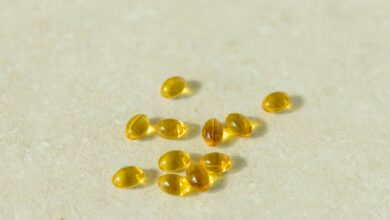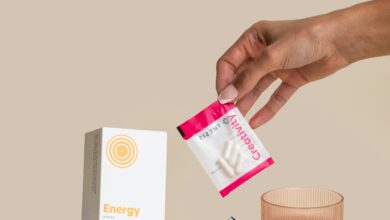How to Use Supplements to Manage Stress: A Comprehensive Guide

Stress is an inevitable part of life, but chronic stress can take a toll on your physical and mental health. While lifestyle changes like exercise, mindfulness, and proper sleep are essential for managing stress, supplements can also play a supportive role. When used correctly, certain vitamins, minerals, herbs, and other natural compounds can help regulate your body’s stress response, improve mood, and promote relaxation. In this article, we’ll explore the best supplements for stress management, how they work, and tips for safe and effective use.
Why Supplements Can Help with Stress Management
Your body’s stress response is regulated by the hypothalamic-pituitary-adrenal (HPA) axis , which controls the release of cortisol and other hormones. Chronic stress can deplete key nutrients, disrupt hormone balance, and impair brain function. Supplements can help replenish these nutrients, support adrenal health, and enhance your resilience to stress.
However, it’s important to note that supplements should complement—not replace—healthy habits. They are most effective when combined with stress-reducing practices like meditation, deep breathing, regular exercise, and adequate sleep.
Best Supplements for Managing Stress
1. Adaptogenic Herbs
Adaptogens are a class of herbs that help your body adapt to stress by balancing cortisol levels and supporting energy production. Popular adaptogens include:
- Ashwagandha : Known for its calming effects, ashwagandha reduces cortisol levels, alleviates anxiety, and improves sleep quality.
- Dosage: 300–600 mg of standardized extract daily.
- Rhodiola Rosea : Enhances mental clarity and combats fatigue caused by stress.
- Dosage: 200–400 mg daily.
- Holy Basil (Tulsi) : Supports adrenal function and promotes relaxation.
- Dosage: 300–600 mg daily.
Tip : Start with one adaptogen at a time to assess its effects on your body.
2. Magnesium
Magnesium is often referred to as the “relaxation mineral” because it plays a crucial role in muscle relaxation, nerve function, and mood regulation. Chronic stress depletes magnesium levels, leading to symptoms like irritability, insomnia, and muscle tension.
- Forms of Magnesium :
- Magnesium Glycinate : Ideal for stress relief and improving sleep.
- Magnesium Citrate : Helps with muscle relaxation and constipation.
- Magnesium L-Threonate : Supports brain health and cognitive function.
- Dosage: 200–400 mg daily, depending on your needs.
Tip : Take magnesium before bed to enhance relaxation and improve sleep quality.
3. B Vitamins
B vitamins, particularly B6, B9 (folate), and B12 , are essential for energy production and nervous system health. They help regulate neurotransmitters like serotonin and dopamine, which influence mood and stress levels.
- Food Sources: Leafy greens, eggs, nuts, seeds, and whole grains.
- Supplement Options: A high-quality B-complex vitamin or methylated forms (e.g., methylcobalamin for B12).
- Dosage: Follow label instructions, typically one capsule daily.
Tip : Methylated forms are better absorbed, especially for individuals with genetic mutations like MTHFR.
4. Omega-3 Fatty Acids
Omega-3s, found in fish oil, reduce inflammation and support brain health. Studies show that omega-3 supplementation can lower cortisol levels and improve mood.
- Forms: Fish oil, krill oil, or algae-based supplements for vegetarians.
- Dosage: 1,000–2,000 mg of combined EPA and DHA daily.
- Benefits: Reduces anxiety, enhances focus, and supports heart health.
Tip : Choose a high-quality supplement free of heavy metals and contaminants.
5. L-Theanine
L-theanine is an amino acid found in green tea that promotes relaxation without causing drowsiness. It increases alpha brain waves, which are associated with calmness and focus.
- Dosage: 100–200 mg, 1–3 times daily.
- Benefits: Reduces stress, improves sleep quality, and enhances cognitive performance.
- Pairing: Combine with caffeine for a balanced energy boost.
Tip : Look for L-theanine in capsule or powder form for convenience.
6. GABA (Gamma-Aminobutyric Acid)
GABA is a neurotransmitter that inhibits overactivity in the brain, promoting relaxation and reducing anxiety.
- Dosage: 100–500 mg daily.
- Benefits: Calms the nervous system and improves sleep.
- Considerations: GABA supplements may not cross the blood-brain barrier effectively; liposomal or pharmaGABA forms are more bioavailable.
Tip : Use GABA supplements in the evening to unwind and prepare for restful sleep.
7. Vitamin D
Low levels of vitamin D are linked to increased stress, anxiety, and depression. This essential nutrient supports immune function, bone health, and mood regulation.
- Dosage: 1,000–4,000 IU daily, depending on your baseline levels.
- Testing: Get your vitamin D levels tested to determine the appropriate dose.
- Sources: Sunlight exposure, fortified foods, and supplements.
Tip : Pair vitamin D with vitamin K2 for optimal absorption and bone health.
8. Probiotics
The gut-brain connection plays a significant role in stress management. Probiotics support a healthy gut microbiome, which influences mood, anxiety, and stress resilience.
- Strains to Look For:
- Lactobacillus rhamnosus : Reduces anxiety-like behavior.
- Bifidobacterium longum : Improves stress response.
- Dosage: Follow product recommendations, typically 1–10 billion CFUs daily.
- Benefits: Enhances digestion, boosts immunity, and stabilizes mood.
Tip : Choose a multi-strain probiotic with diverse bacteria species.
9. Melatonin
Melatonin is a hormone that regulates sleep-wake cycles. Poor sleep exacerbates stress, so ensuring restorative sleep is critical for stress management.
- Dosage: 0.5–5 mg, taken 30–60 minutes before bedtime.
- Benefits: Improves sleep quality and reduces nighttime anxiety.
- Considerations: Use melatonin sparingly to avoid dependency.
Tip : Combine melatonin with magnesium for enhanced relaxation.
10. Herbal Teas and Tinctures
Herbal teas and tinctures offer gentle, natural ways to manage stress throughout the day.
- Chamomile : Promotes relaxation and reduces anxiety.
- Lemon Balm : Calms nerves and improves mood.
- Passionflower : Reduces restlessness and supports sleep.
Tip : Drink herbal teas in the evening or during stressful moments for immediate relief.
Tips for Safe and Effective Use of Supplements
- Consult a Healthcare Professional : Before starting any new supplement, consult your doctor, especially if you’re pregnant, nursing, or taking medications.
- Start Low and Go Slow : Begin with the lowest effective dose to assess tolerance and avoid side effects.
- Choose High-Quality Products : Opt for third-party tested supplements from reputable brands to ensure purity and potency.
- Monitor Your Response : Keep track of how each supplement affects your mood, energy, and stress levels.
- Combine with Lifestyle Changes : Supplements work best when paired with stress-reducing practices like yoga, meditation, and therapy.
Common Mistakes to Avoid
- Over-Supplementing : Taking too many supplements can lead to imbalances or adverse reactions.
- Ignoring Underlying Causes : Supplements address symptoms but don’t eliminate root causes of stress, such as poor diet, lack of exercise, or unresolved emotional issues.
- Skipping Professional Guidance : Self-prescribing without medical advice can be risky, especially for individuals with pre-existing conditions.




